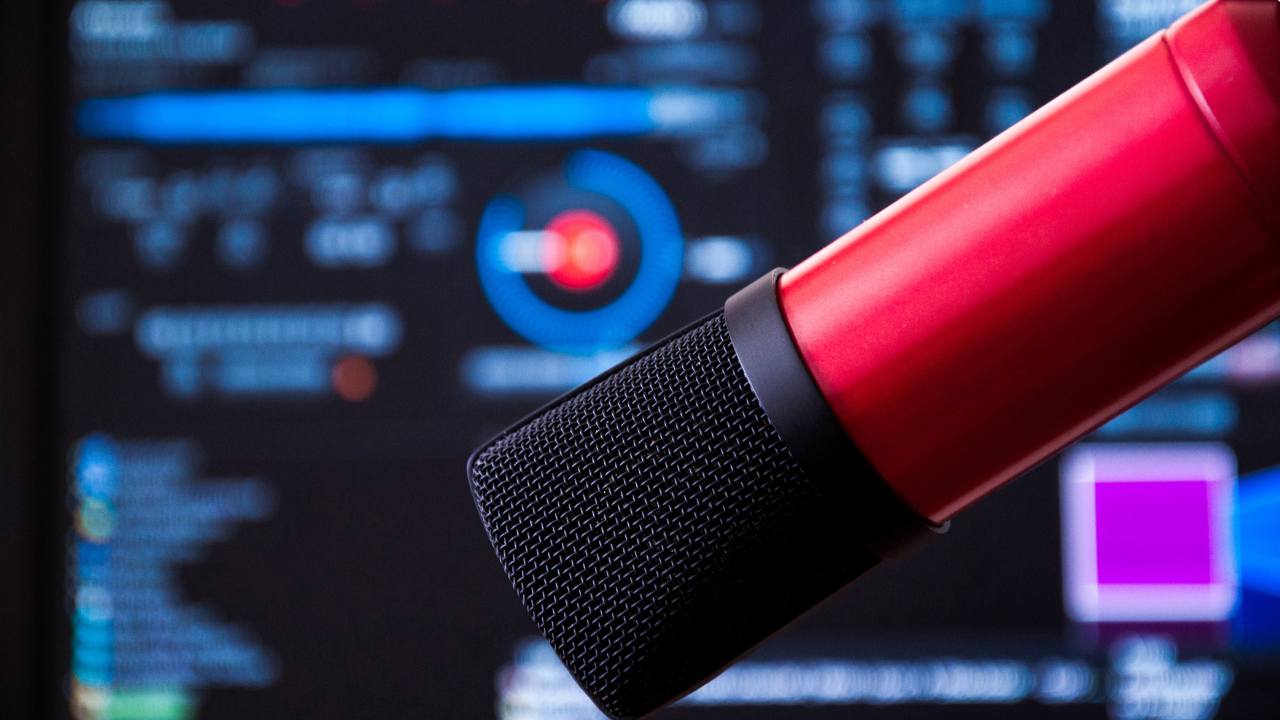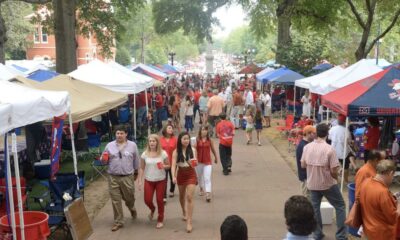Mississippi Today
Podcast: Lawmaker outlines city of Jackson legislative issues

State Rep. Zakiya Summers discusses with Mississippi Today’s Anna Wolfe, Maya Miller and Geoff Pender some of the issues the Capitol city of Jackson and the Metro Area face, and legislative priorities to deal with them.
READ MORE: As lawmakers look to cut taxes, Mississippi mayors and county leaders outline infrastructure needs
This article first appeared on Mississippi Today and is republished here under a Creative Commons license.![]()
Mississippi Today
New Orleans (and Mississippi) have rich Super Bowl history

With the Super Bowl returning to the Gulf South, it’s time for a history lesson. This Sunday’s Super Bowl 59 will be the 11th played in New Orleans and the eighth played in the Louisiana Superdome. This writer has lived them all and I do have some memories. Let’s take a stroll back through time and the Crescent City.
Super Bowl IV: Kansas City Chiefs 23, Minnesota Vikings 7
Jan. 11, 1970
The Vikings were 13-point favorites, but as KC coach Hank Stram famously put it, the Chiefs’ lopsided victory was “like taking candy from babies.” Tickets cost $15, and my dad scored four on the 50-yard line just beneath the press box. It was the only Super Bowl I attended as a fan and Joe DiMaggio, the Yankee clipper, sat right in front of us, much to my mother’s delight.

The Vikings’ much-feared defensive line was known as the Purple People Eaters, but it was the KC defense, led by by former HBCU stars such as Willie Lanier (Morgan State), Buck Buchanan (Grambling), Jim Marsalis (Tennessee State) and Emmitt Thomas (Bishop) that chased Vikings quarterback Joe Kapp all over the field and punished him physically. The Vikings had no answer for Chiefs wide receiver Otis Taylor, another former SWAC star out of Prairie View, who caught eight passes, including a touchdown from MVP Lenny Dawson, who enjoyed a few smokes on the sideline. The SWAC was also well-represented in the halftime show by the Southern University Human Jukebox band. Jerrell Wilson, who played college ball at both Pearl River Junior College and Southern Miss, punted four times for a 48.5 average, helping the Chiefs control field position.
Super Bowl VI: Dallas Cowboys 24, Miami Dolphins 3
Jan. 17, 1972
Interestingly, Miami, Dallas and New Orleans were the finalists to host the sixth Super Bowl, but New Orleans got it because both Dallas and Miami were considered favorites to reach the championship game, and the New Orleans Saints were most decidedly not. This was my first Super Bowl to cover as a journalist and it was, for the most part, boring. It was also the coldest (39 degrees at kickoff). Dallas’ Doomsday Defense, which included linebacker D.D. Lewis of Mississippi State, was dominant. The Dolphins’ three-point output remains the lowest in Super Bowl history. Tickets were again $15. The halftime show was a tribute to New Orleans own Louis Armstrong, who had died the year before. Ella Fitzgerald was the featured performer, and she was at least as good as MVP Roger Staubach. This was also the Super Bowl when Duane Thomas was accurately quoted as saying, “If it’s really the ultimate game, how come they play it again next year?”
Super Bowl IX: Pittsburgh Steelers 16, Minnesota Vikings 6
Jan. 12, 1975
This was supposed to be the first Super Bowl played in the Superdome. Instead it was the last played in Tulane Stadium due to myriad construction delays. Ticket prices had escalated all the way to $20. The Steelers’ Iron Curtain defense ruled the day in the last professional game ever played at the grand old stadium on Willow Street. Vikings quarterback Fran Tarkenton somehow survived, but not before throwing three interceptions and completing only 11 of 26 throws. With Canton native L.C. Greenwood among the chasers, Tarkenton really was running for his life. MVP Franco Harris ran for 158 yards and at touchdown. The halftime show was a tribute to Duke Ellington and featured the Grambling State band.
Super Bowl XII: Dallas Cowboys 27, Denver Broncos 10
Jan. 15, 1978
Ticket prices had escalated to $30 for the first indoor Super Bowl, and Broncos fans probably wanted a refund. In what had to be the worst offensive performance in Super Bowl history, the Broncos turned the ball over eight times and managed only 156 yards of total offense. Broncos starting quarterback Craig Morton completed four passes to teammates and just as many to his former Cowboys teammates. Appropriately, defensive linemen Randy White and Harvey Martin shared MVP honors. D.D. Lewis, the former Mississippi State great who is one of only eight players to have played in five Super Bowls, got his second Super Bowl ring in this one. The NFL had yet to hire huge national acts for halftime shows. The Tyler (Texas) Junior College band was featured at halftime.
Super Bowl XV: Oakland Raiders 27, Philadelphia Eagles 10
Jan. 25, 1981
Eagles coach Dick Vermeil ran a tight ship with strict curfews during Super Bowl week. Meanwhile, Raiders coach Tom Flores, the first Hispanic coach to win a Super Bowl, allowed his rough and rowdy players such as Ted Hendricks and John Matuszak to roam the French Quarter at all hours. So much for sobriety and strict bed checks. Southern Miss hero and future College and Pro Football Hall of Famer Ray Guy punted three times for a 42-yard average but did not hit the Superdome gondola, which was raised after he hit it in 1976 Pro Bowl. Greenville native Wilbert Montgomery ran for 44 yards and caught six passes for 91 yards to lead all receivers. “Up With People” performed at halftime, back when people still went to the bathroom at halftime during Super Bowls.
Super Bowl XX: Chicago Bears 46, New England Patriots 10
Jan. 26, 1986

Had it been a boxing match, it would have been stopped in the first quarter. This was a brutal beating, which featured several Mississippians on the victorious Bears. Walter Payton (Columbia, Jackson State), who was the all-time NFL rusher at the time, was the Bears’ running star. Leslie Frazier (Columbus, Alcorn State) and Tyrone Keys (Jackson, Mississippi State) were defensive standouts. Sadly, Frazier suffered what amounted to be a career-ending knee injury on a punt return in this game. Unfortunately, Bears head coach Mike Ditka called a running play for William Perry, a 370-pound lineman, to score the Bears last touchdown, instead of giving the ball to Payton. Some of us will never forgive him. Ticket prices had risen to $75, but the halftime show was still “Up with People.”
Super Bowl XXIV: San Francisco 49ers 55, Denver 10
Jan. 28, 1990
This remains the most lopsided score in Super Bowl in history. Jerry Rice (Crawford, MVSU) caught seven passes for 148 yards and three touchdowns from Joe Montana, who earned MVP honors, which just as easily could have gone to Rice. Broncos quarterback John Elway completed only 10 passes and was intercepted twice. Broncos running back Sammy Winder (Pocahontas, Southern Miss), playing in his final of three Super Bowls, carried the ball only once and caught one pass. Tickets were $125 and Rice and Montana were worth the cost of admission. This was the last Super Bowl halftime to feature “Up with People.” No complaints were recorded.
Super Bowl XXXI: Green Bay Packers 35, New England Patriots 21
Jan. 26, 1997

This was as close as Mississippi will ever come to hosting the Super Bowl. The NFL chartered buses for media to travel to Kiln and Hattiesburg to visit Brett Favre’s Mississippi hometowns. In the game, Favre threw for 247 yards and two interceptions and the Packers breezed to victory. Favre’s first pass was a 54-yard touchdown to Andre Rison, on which Favre changed the play at the line of scrimmage. Favre was the MVP for the season, but Desmond Howard, who had a 99-yard kickoff return, won Super Bowl MVP. Ticket prices had zoomed to an average of $275 per seat. ZZ Top performed at halftime, along with Blues Brothers Dan Ackroyd, Jim Belushi and John Goodman.
Super Bowl XXXVI: New England Patriots 20, St. Louis Rams 17
Feb. 3, 2002
The first Super Bowl played in February was the first of many Super Bowl successes for Bill Belichick and Tom Brady. This was also the first Super Bowl played after 9/11 and it took media more than an hour to get through security. The game was worth the wait, as Adam Vinatieri’s 48-yard field goal on the last play of the game provided the victory margin. The Rams had been 14-point favorites, thanks largely to their “Greatest Show on Turf” offense. Pascagoula’s Terrell Buckley, recently named head coach at Mississippi Valley State, intercepted a pass and defensive end Bobby Hamilton (Columbia, Southern Miss) had a sack for the Pats defense, which bent but didn’t break. U2 provided memorable halftime entertainment for a crowd that paid an average of $400 per ticket.
Super Bowl XLVII: Baltimore Ravens 34, San Francisco 49ers 31
Feb. 3, 2013

Many have called this the Blackout Bowl because of a power outage shortly after Beyonce’s halftime performance delayed the game for 34 minutes. Ticket prices had soared to $1,250 face value but were scalped for much more, which is probably why face value for tickets this Sunday range up to $7,500. The 47th Super Bowl featured brothers as coaches. John Harbaugh’s Ravens edged Jim Harbaugh’s Niners thanks largely to Joe Flacco’s MVP, three-touchdown passing performance. Colin Kaepernick passed for 301 yards and ran for 62 in a losing effort. Ole Miss great and Pro Football Hall of Famer Patrick Willis led all tacklers with 10 for the losing team.
This article first appeared on Mississippi Today and is republished here under a Creative Commons license.![]()
Mississippi Today
On this day in 1955
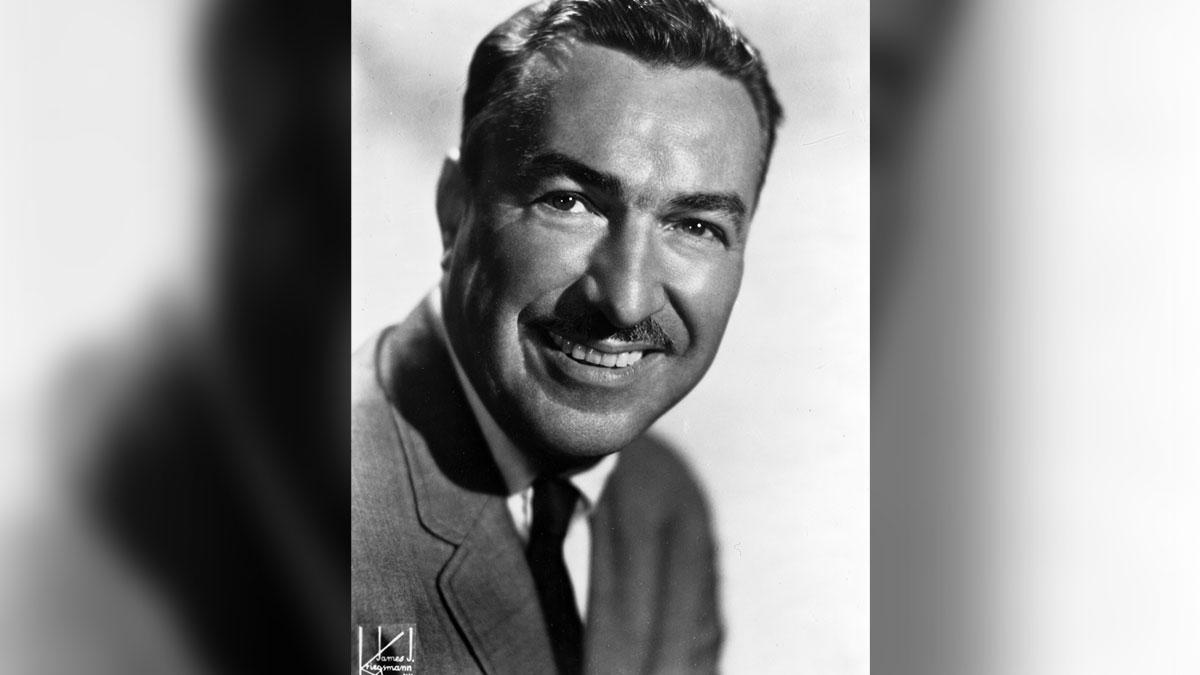
Feb. 2, 1955

Less than a year after the U.S. Supreme Court had desegregated public schools, U.S. Rep. Adam Clayton Powell Jr. rose on the House floor.
A Baptist preacher to a congregation of 10,000 in Harlem, he was one of only three Black Americans in Congress. Since getting elected to Congress a decade earlier, he had introduced many civil rights bills. None had passed. After introducing legislation to desegregate the armed forces, then-President Harry Truman wound up doing it through an executive order.
As Powell stepped to the microphone, he chastised Congress for failing to make a difference. He and others had introduced civil rights bills, “pleading, praying that you good ladies and gentlemen would give to this body the glory of dynamic leadership that it should have, but you have failed, and history has recorded it,” he said.
“This is an hour for boldness. This is an hour when a world waits breathlessly, expectantly, almost hungrily for this Congress, the 84th Congress, through legislation to give some semblance of democracy in action. … We are derelict in our duty if we continue to plow looking backward.”
He noted that when a House committee was considering legislation to end segregation in interstate travel, Lt. Thomas Williams was arrested and jailed, even though the Supreme Court had told bus carriers to end such segregation.
“About two weeks ago, while flying a jet plane, he was killed serving his country before he had a chance to see democracy come to pass,” Powell said.
Although his legislation failed, he kept pushing for change, telling crowds, “Keep the Faith, Baby!” The civil rights rider he introduced became part of the historic Civil Rights Act of 1964, which helped change America.
This article first appeared on Mississippi Today and is republished here under a Creative Commons license.![]()
Mississippi Today
On this day in 1960

Feb. 1, 1960

Four Black freshmen students from North Carolina A&T — Franklin McCain, Joseph A. McNeil, David L. Richmond and Ezell A. Blair Jr. — began to ask themselves what they were going to do about discrimination.
“At what point does a moral man act against injustice?” McCain recalled.
McNeil spoke up. “We have a definite purpose and goal in mind,” he said, “and with God on our side, then we ask, ‘Who can be against us?’”
That afternoon, they entered Woolworth’s in downtown Greensboro. After buying toothpaste and other items inside the store, they walked to the lunch counter and sat down.
They ordered coffee, but those in charge refused to serve them. The students stood their ground by keeping their seats.
The next day, they returned with dozens of students. This time, white customers shouted racial epithets and insults at them. The students stayed put. By the next day, the number of protesting students had doubled, and by the day after, about 300 students packed not just Woolworth’s, but the S.H. Kress Store as well.
A number of the protesting students were female students from Bennett College, where students had already been gathering for NAACP Youth Council meetings and had discussed possible sit-ins.
By the end of the month, 31 sit-ins had been held in nine other Southern states, resulting in hundreds of arrests. The International Civil Rights Center & Museum has preserved this famous lunch counter and the stories of courage of those who took part in the sit-ins.
This article first appeared on Mississippi Today and is republished here under a Creative Commons license.![]()
-
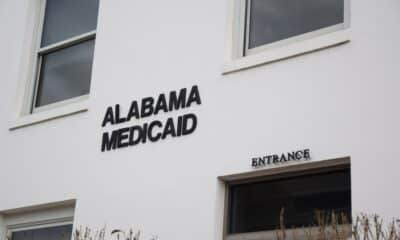
 News from the South - Alabama News Feed6 days ago
News from the South - Alabama News Feed6 days agoTrump’s federal funding freeze leads to confusion, concern among Alabama agencies, nonprofits • Alabama Reflector
-

 Kaiser Health News6 days ago
Kaiser Health News6 days agoTrump’s Funding ‘Pause’ Throws States, Health Industry Into Chaos
-
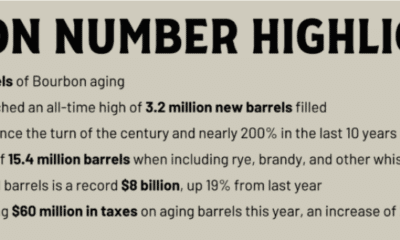
 News from the South - Kentucky News Feed7 days ago
News from the South - Kentucky News Feed7 days agoKentucky’s bourbon industry worries as potential 50% EU-imposed tariffs loom
-
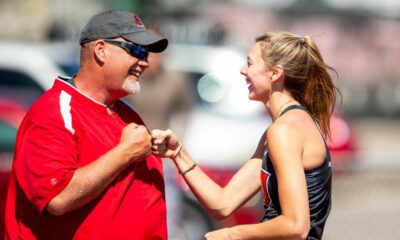
 News from the South - Kentucky News Feed3 days ago
News from the South - Kentucky News Feed3 days agoWKU Mourns Loss Of Cross Country/Track & Field Head Coach Brent Chumbley
-
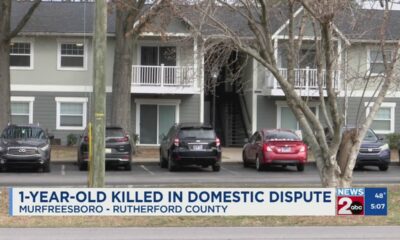
 News from the South - Tennessee News Feed7 days ago
News from the South - Tennessee News Feed7 days ago1-year-old killed during domestic dispute in Murfreesboro
-

 Local News6 days ago
Local News6 days agoFormer Ole Miss QB Jaxson Dart continues to impress as the first Reese’s Senior Bowl practice wrapped up on Tuesday
-
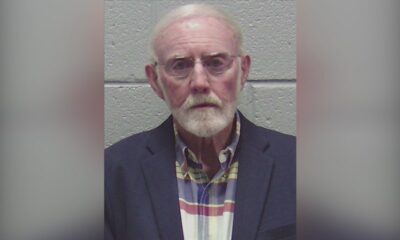
 News from the South - Georgia News Feed5 days ago
News from the South - Georgia News Feed5 days ago“Very hard to believe”, locals react to arrest Lincoln County commissioner in child molestation investigation
-
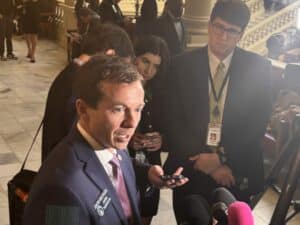
 News from the South - Georgia News Feed6 days ago
News from the South - Georgia News Feed6 days agoGeorgia Senate Republicans reopen probe into Fulton DA Willis. Dems deride it as waste of time. • Georgia Recorder



